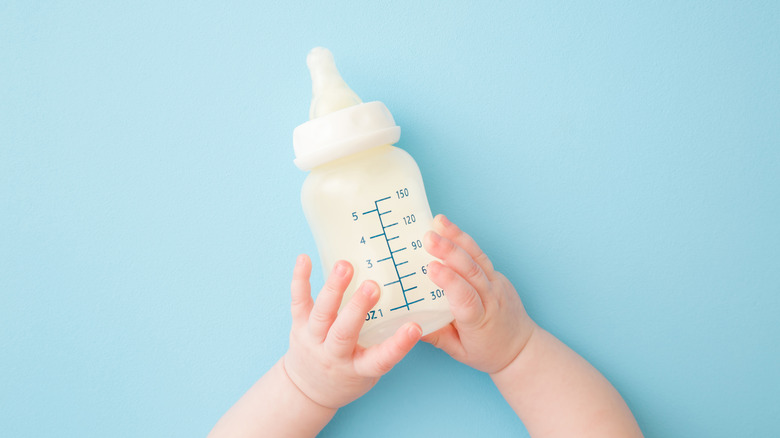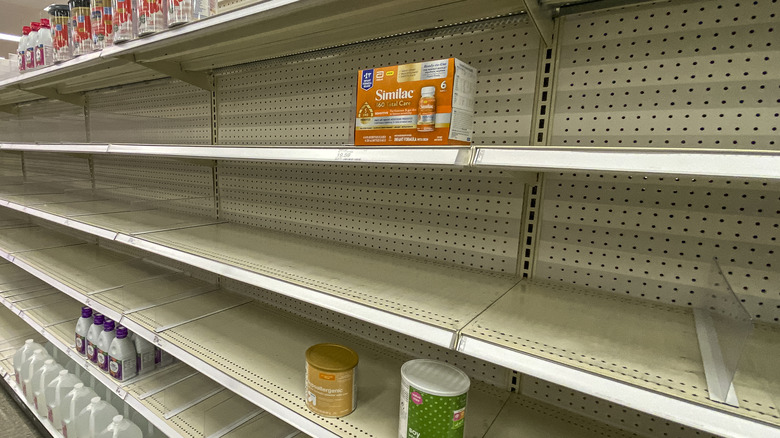Why You Should Never Dilute Baby Formula
The nationwide shortage of baby formula is proving stressful on families. According to Forbes, 20 states were dealing with out-of-stock rates that fell between 30 and 40% in April, with places like New Jersey, Connecticut, Texas, and Washington facing even higher shortages. With nowhere to turn, parents are questioning whether diluting baby formula can help stretch rations.
CNN reports that the formula shortage is a result of issues in the supply chain, in addition to product recalls. Abbott — also affiliated with Alimentum, Similac, and EleCare brands — makes up 40% of the U.S. baby formula market, explains Time, which is why their shutdown in February (due to bacterial contamination resulting in several infant deaths) is impacting the industry.
With the American infant formula market expected to reach $5.81 million by 2027, as stated by Allied Market Research, the need for formula is only expected to skyrocket. Fox Business suggests the main reasons being the increase of parents in the workforce, coupled with the marketing for high nutritional content of formula. But, even if supplies are scarce, parents are cautioned against diluting baby formula.
Diluting baby formula can pose a health risk to your baby
While stretching formula can be tempting, it can have serious, life-threatening consequences for newborns and infants. According to US News, adding extra water to baby formula can significantly increase the risk of a seizure. Likewise, the CDC explains that preparing bottles with too much water will result in a lack of nutrition.
Since infant formulas are specifically designed to contain the right amounts of protein, fat, vitamins and minerals, What to Expect stresses that diluting the formula can interfere with healthy development because of potential imbalances caused by the added water.
As for alternatives, the FDA strongly advises against making homemade formulas because they often lead to hospitalization due to nutrient deficiencies along with foodborne illnesses. If parents are totally unable to find infant formula, they are encouraged to talk to their healthcare provider before resorting to extreme solutions, explains The New York Times.

